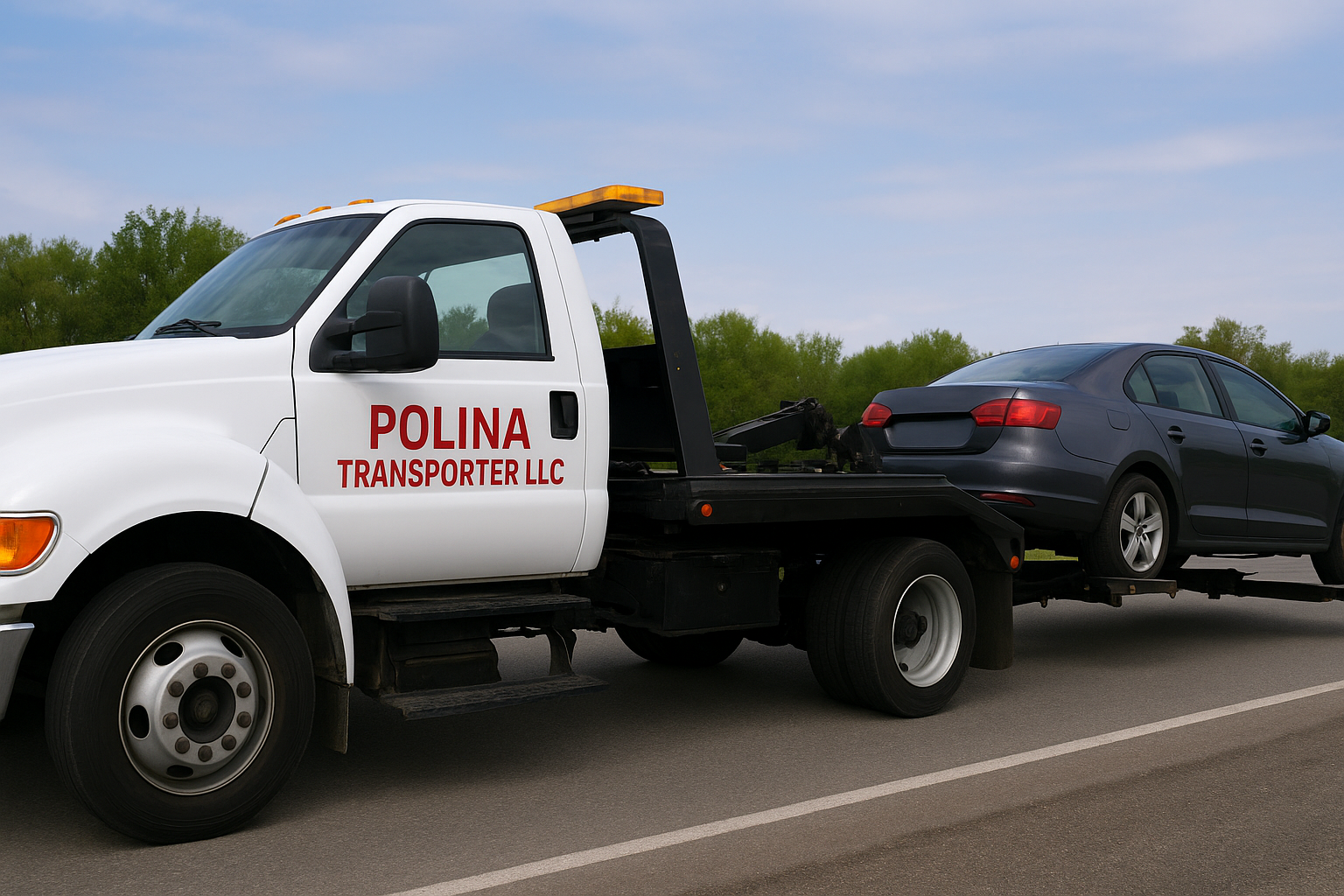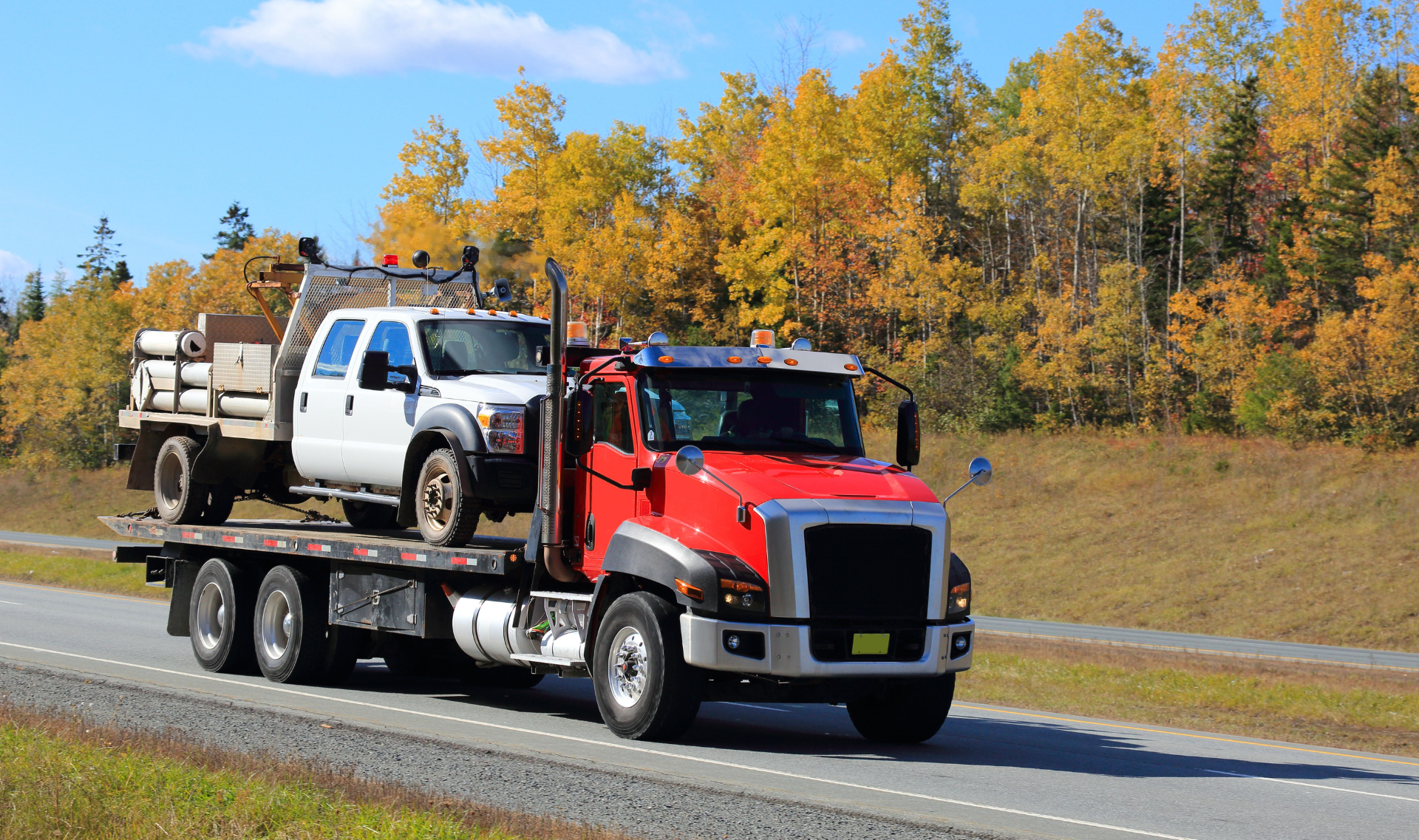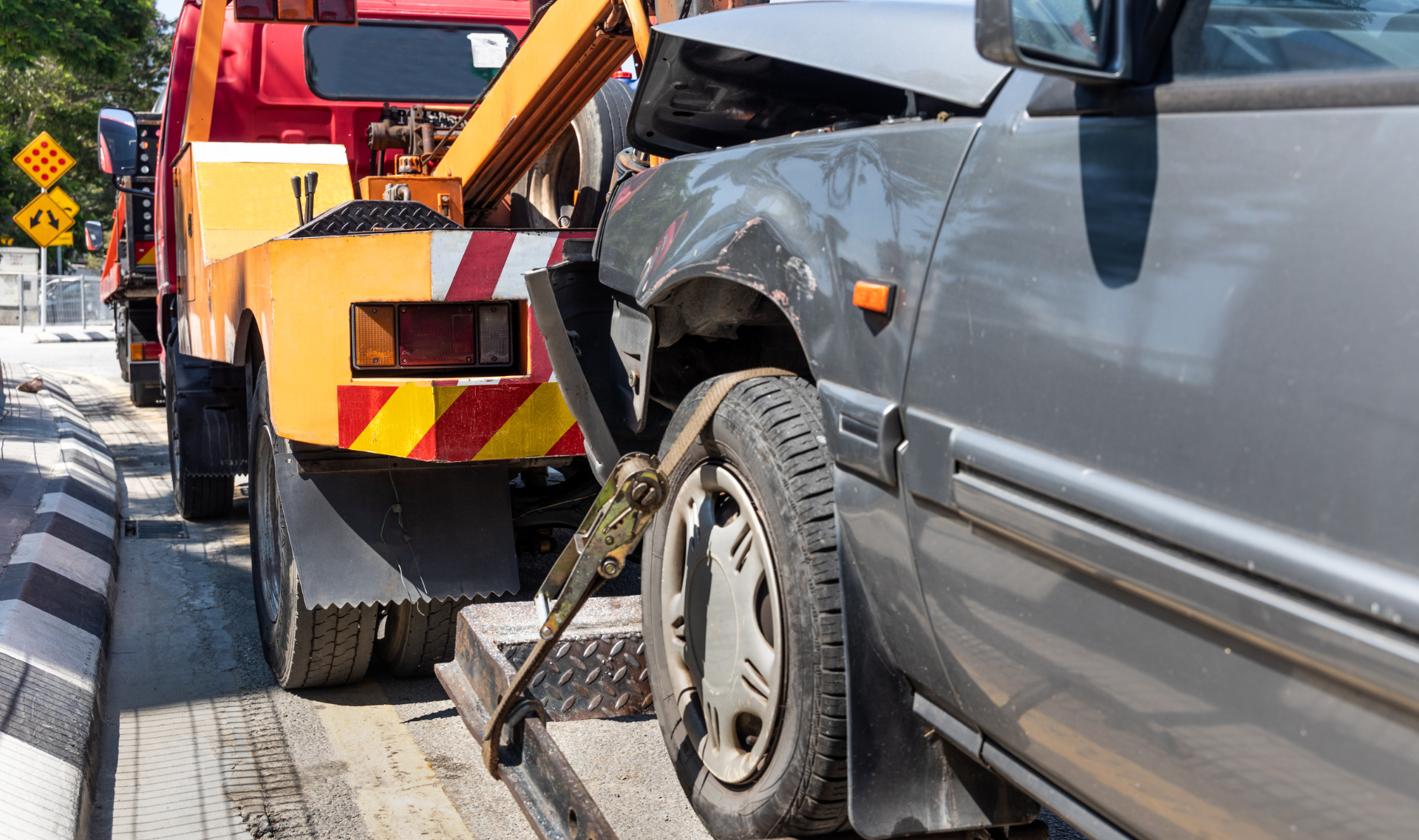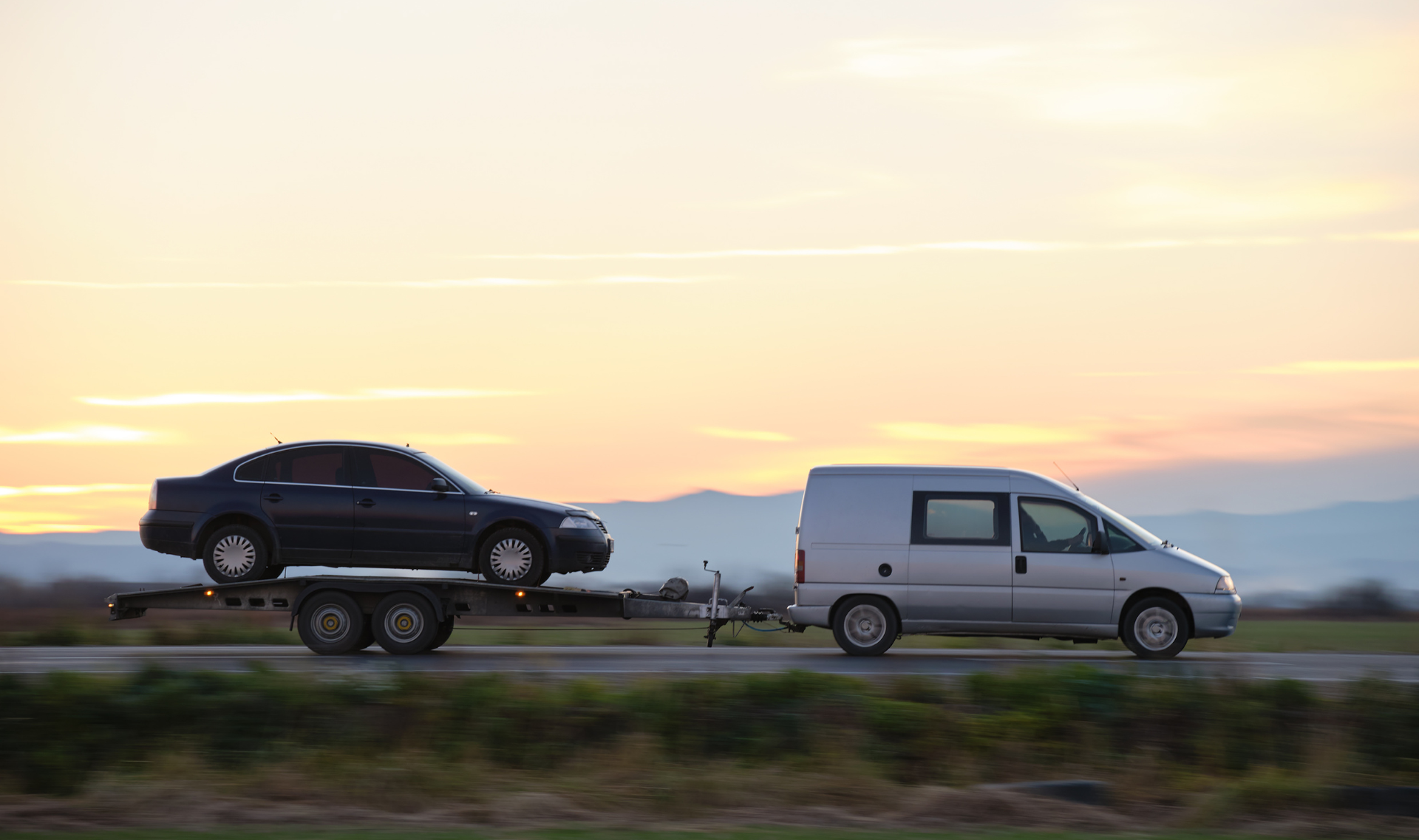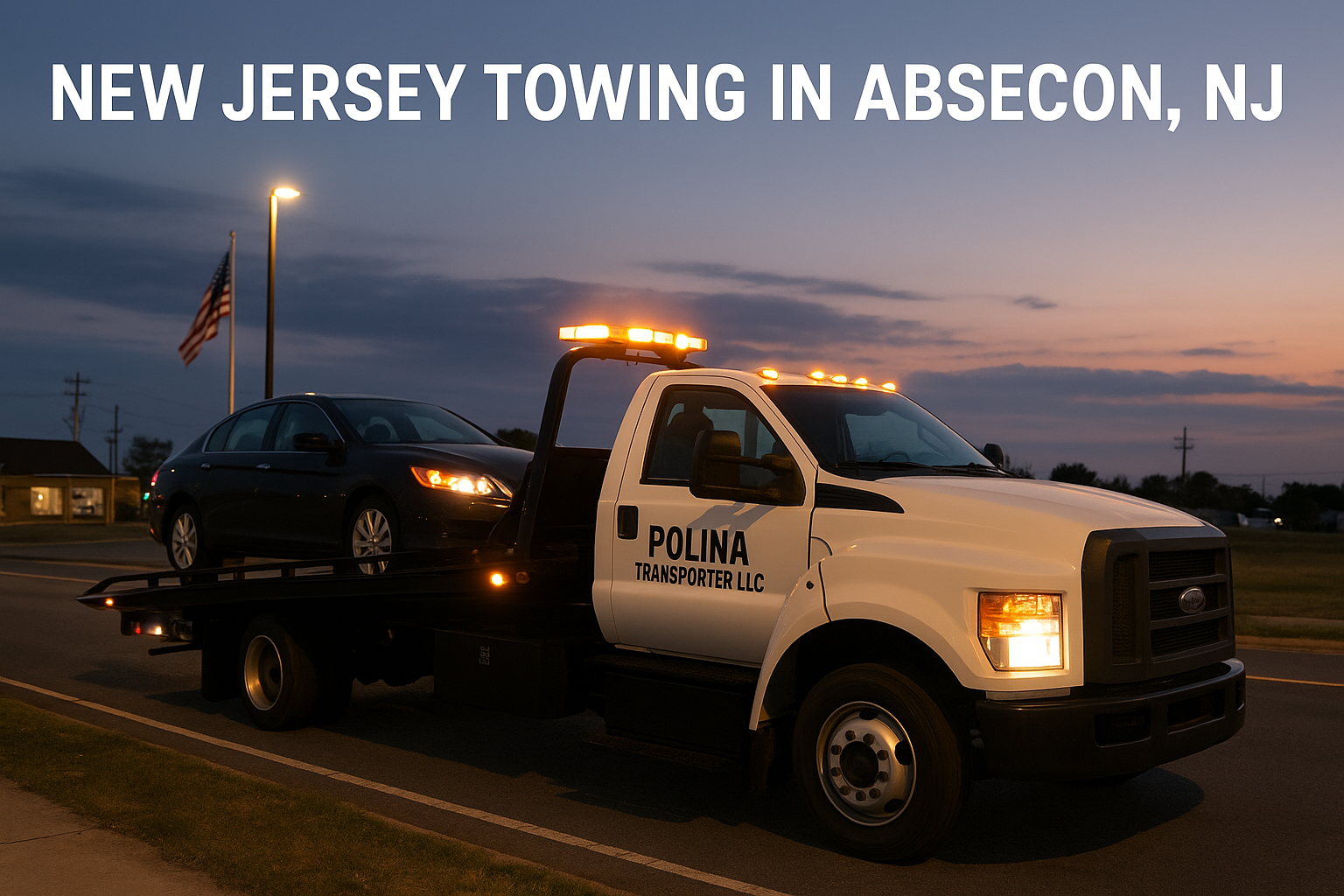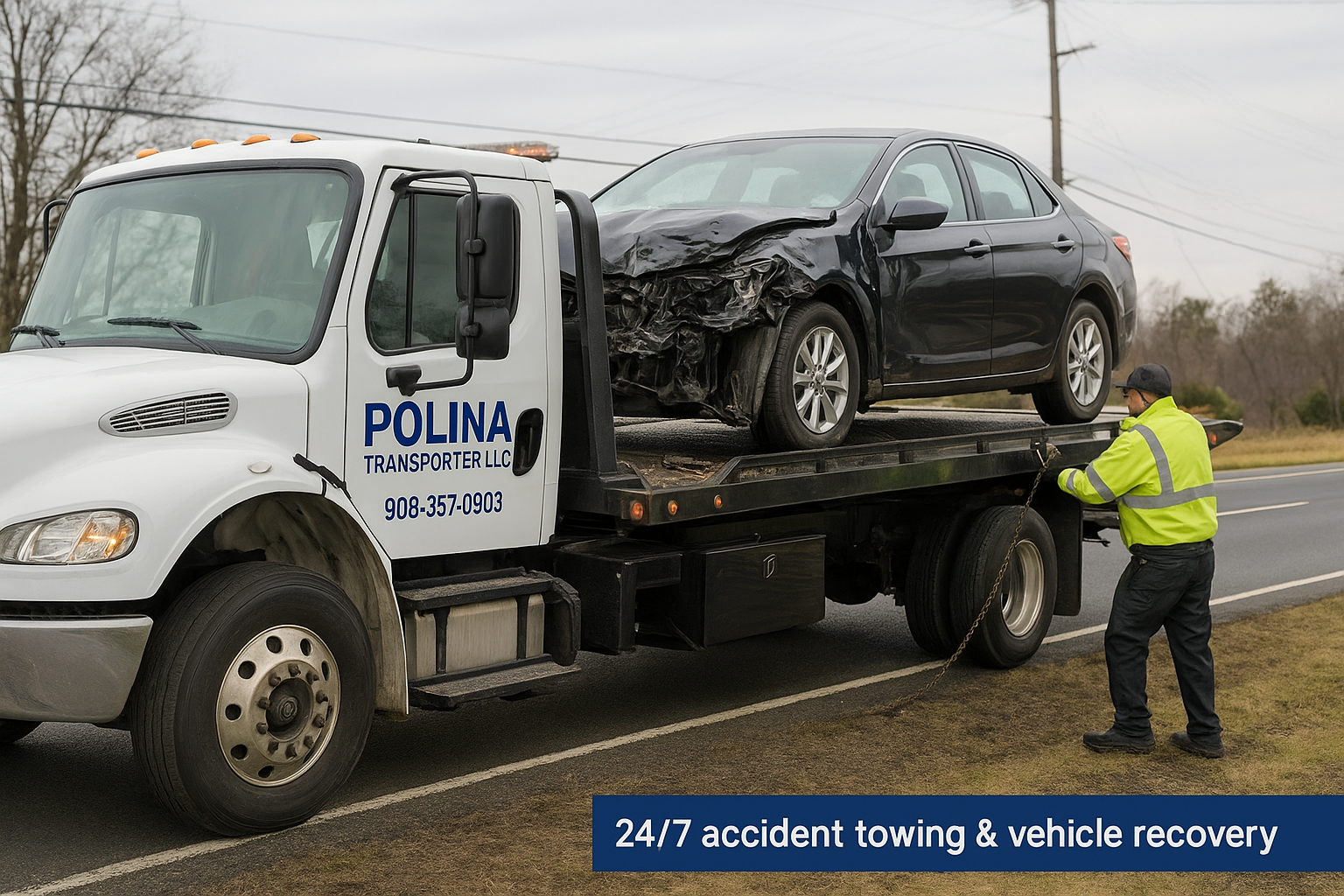If you need a long-distance tow from or inside New Jersey, a clear safety-first checklist and a reputable provider make the difference between a smooth transport and an expensive, stressful mess. This guide (written from 10 years of roadside-recovery experience) shows exactly what to do, what to expect, and how to choose the right tow truck near me for long hauls, interstate moves, and highway recoveries.
1) Quick emergency checklist — What to do in the first 15 minutes
- Move to safety (if you can): If your car is operable, pull well off the road, out of traffic, and turn on hazards. If you’re on a highway, try to reach an emergency shoulder or nearest exit and stand well away from traffic.
- Call for help: Dial 911 if anyone is injured or if the vehicle creates an immediate hazard. Otherwise call your roadside provider or search “Tow truck near me” for a fast local match.
- Record the scene: Take photos of damage, license plates, and the surrounding area — this speeds insurance claims and prevents disputes.
- Get an on-the-spot estimate: Ask the dispatcher for an ETA and a rough price breakdown (hook, mileage, storage) before the tow begins. Keep the operator’s name and truck number.
- Protect valuables & documents: Remove personal items and the vehicle title/registration if you’ll use a storage lot. Note: towing companies are often required to make your vehicle accessible for you to retrieve property during normal business hours.
2) Why long-distance towing is different
Long-distance towing is not just “more miles.” It often crosses municipal and state rules, requires different equipment (flatbeds, heavy-duty units, multi-axle carriers), and — for commercial moves or highways — may fall under federal oversight. Expect additional charges for two-way travel time, permits (if oversized), and required insurance/financial responsibility levels. For for-hire tow trucks involved in interstate emergency moves, federal financial responsibility thresholds apply.
3) How to choose the right tow truck near me for a long haul
Ask these questions when you call or when a dispatcher calls back:
- Are you licensed and insured for long-distance / interstate moves? (If the carrier is doing interstate commercial moves, FMCSA rules and financial responsibility requirements may apply.)
- What equipment will you send? Flatbed for all-wheel or high-clearance vehicles; wheel-lift or dolly for short hops. For heavy pickups, choose a heavy-duty carrier.
- Can you provide a written estimate and invoice that lists hook, per-mile, storage, and any additional fees? New Jersey local ordinances and consumer protections require clear notice for towing and storage practices.
- What’s your ETA and truck number? Write it down. Reputable companies dispatch with GPS and give real-time updates. (Polina Transporter LLC)
Use online reviews, the company website, and local business listings to confirm reputation — but prioritize written estimates and documented proof of insurance before handing over keys.
4) What affects long-distance towing price?
Common fee components:
- Hook / hookup fee: a fixed amount for dispatch and initial hookup.
- Per-mile or per-kilometer charge: long hauls use higher per-mile rates and sometimes a minimum total.
- Return trip / deadhead time: if the operator must return to base, that travel may be billed.
- Storage & administrative fees: storage is regulated locally; unreasonable fees can be challenged.
Example: A simple local town tow and a 100-mile interstate recovery look very different on the invoice. Always ask for each fee type and insist on an itemized receipt.
5) Preparing your vehicle for long towing or transport
- Remove loose items: anything that can move or break should come out of the car (electronics, luggage).
- Disable alarms: confirm the tow operator can secure or disable factory alarms if needed.
- Secure parking brake & gear: follow the operator’s instructions — some tows require the vehicle in neutral.
- Photograph odometer & existing damage: protects you from damage claims during longer trips.
- Notify your insurance & lender: if the vehicle is financed, the lender may insist on specific carriers or paperwork.
6) When interstate rules matter (FMCSA basics)
If your vehicle move crosses state lines and is performed for hire, FMCSA regulations may apply — especially for heavy trucks and for-hire tow operations. For example, for-hire tow trucks with a GVWR or GCWR of 10,000+ lb performing emergency interstate moves must maintain specified levels of financial responsibility. That means carriers moving vehicles across state lines should be able to show USDOT/FMCSA registration and proof of coverage. Ask for this documentation before authorizing the move.
7) Helpful enhancements — documents, apps, and insurance tips
- Save these contacts and screenshots: Company name, dispatcher, truck number, license plates. A screenshot of the price quote (text or email) is invaluable.
- Use an app or GPS location tool: Share your exact coordinates with the dispatcher — it speeds response time on highways.
- Consider roadside membership (AAA, insurer benefits): Memberships often cap your cost and streamline service, especially for simple tows and jumpstarts.
- If you suspect a price gouge: Compare the estimate with local ordinances and request to speak to a manager; New Jersey consumer guidance explains what to expect if you’ve been towed.
Author & review box
Author: Senior Roadside Recovery Specialist — 10 years in towing, recovery, and fleet logistics.
Organization: Polina Transporter LLC — PolinaTransporterLLC.com (NJ, PA, NY operations). (Polina Transporter LLC)
Contact for service: Polina Transporter LLC, (908) 357-0903
Reviewed by: Field Operations Lead, Polina Transporter LLC — certified heavy-duty recovery technician.
Last reviewed: 2025-10-06
References & citations
- New Jersey Consumer Affairs — What You Should Know About Getting Towed (overview of consumer protections and storage rules).
- FMCSA — Tow truck and financial responsibility guidance (interstate towing rules, coverage thresholds).
- New Jersey State Police — Towing minimum requirements and procedures.
- N.J. Admin Code §13:45A-31.5 — Guidance on unreasonable fees for towing and storage.
- Polina Transporter LLC — Services, pricing overview, and long-distance towing offerings. (Polina Transporter LLC)
Related reading & next actions
- Related: “How Much Does a Tow Cost in New Jersey?” — quick pricing signals. (Polina Transporter LLC)
- Next actions:
- Save Polina Transporter LLC dispatch contact for 24/7 long-distance tow help. (Polina Transporter LLC)
- Download the printable NJ towing checklist and keep it in your glovebox.
- Save Polina Transporter LLC dispatch contact for 24/7 long-distance tow help. (Polina Transporter LLC)
- Related: “How Much Does a Tow Cost in New Jersey?” — quick pricing signals. (Polina Transporter LLC)
Short FAQ
Q: How soon will a long-distance tow arrive?
Q: Can I dispute tow/storage fees in New Jersey?
Q: Should I use AAA or call a local company?
Contact Polina Transporter LLC
📞 Phone: (908) 357-0903
🌐 Website: polinatransporterllc.com
🚚 Services: 24/7 towing, jump starts, fuel delivery, accident recovery, lockout service
📍 Service Area: Absecon, Atlantic County, & surrounding NJ regions
Call anytime for immediate local dispatch and reliable, affordable roadside assistance!

